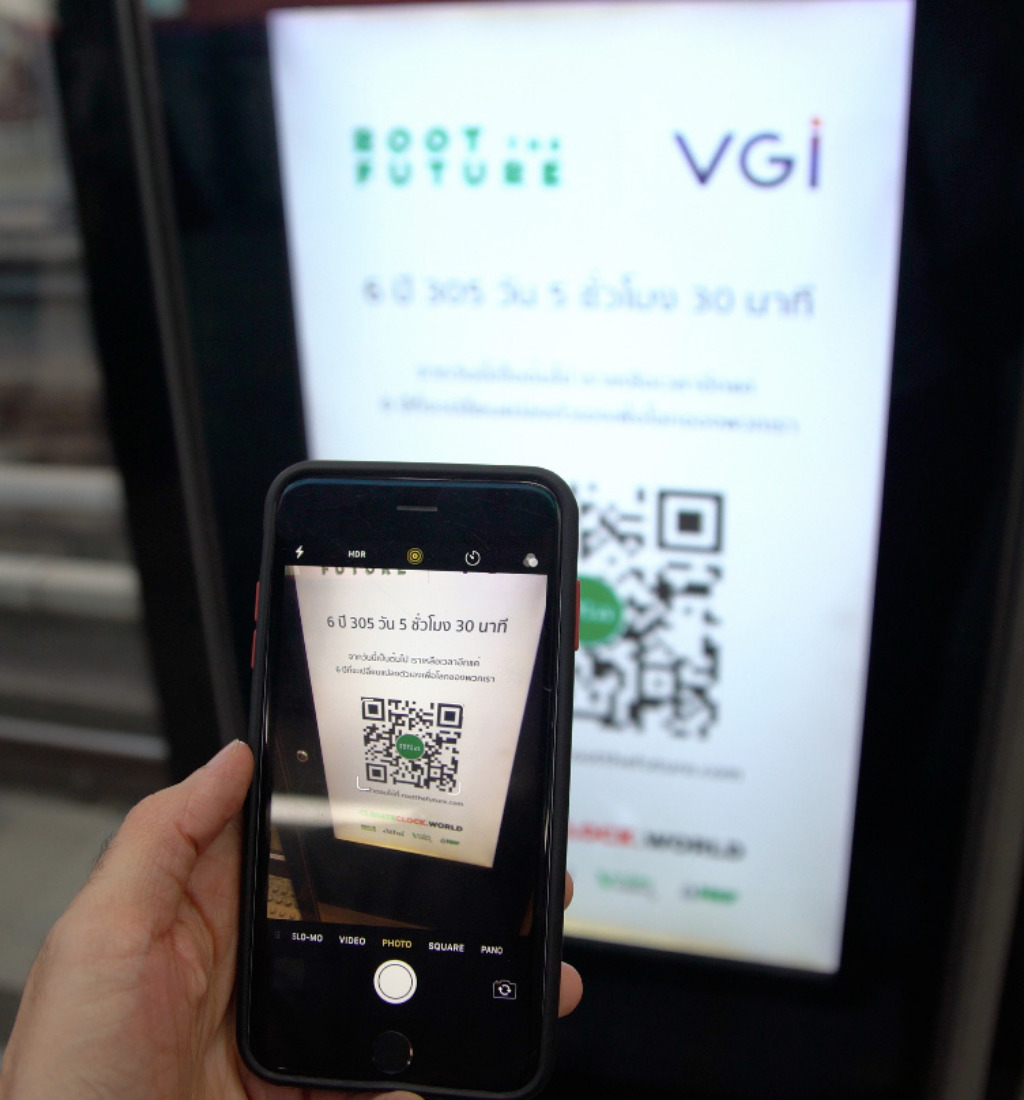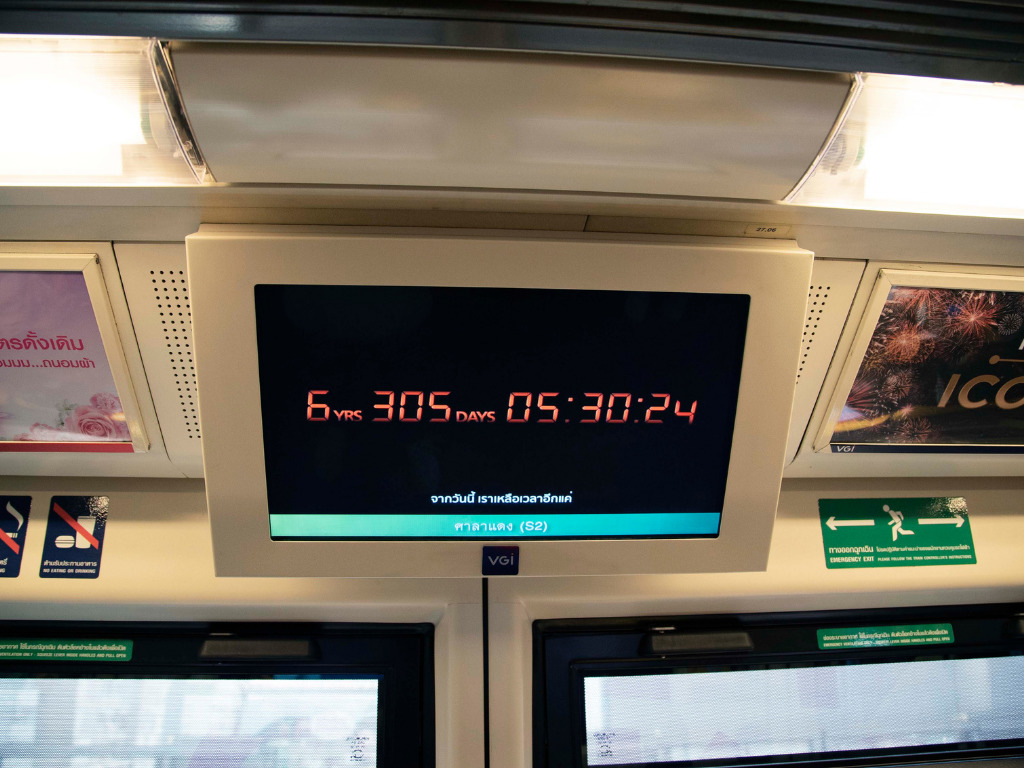Bangkok Plant-Based NGO Unveils Mass Transit Climate Clock Video Campaign To Highlight Climate Change
3 Mins Read
Root The Future, a non-profit organization that hopes to push forward Thailand’s plant-based industry just partnered with VGI, a data and consumer insights platform to launch the country’s first mass climate crisis campaign featuring their jointly produced #SaveMyFuture video at multiple Bangkok Mass Transit System (BTS) subway stations including Chong Nongsi, Asoke, Sala Daeng, and Phrong Phong in order to raise awareness about the climate crisis.
Previously, in an effort to take action against climate change and raise awareness among their citizens, cities around the world such as New York, Berlin, and Paris installed climate clocks to make a point about the time that is left to save our planet from irreversible changes.
With Bangkok being one of the most vulnerable cities in the world when it comes to climate change and with predictions that show that it could be underwater by 2050, Root The Future felt it was important and powerful to harness the power of video and social media to run the campaign in the city.
In the 1-minute video, the climate clock first appears showing that we have 6 years, 305 Days, 5 hours, 30 minutes, and 25 seconds to do something about our planet. It is a visual representation of how long it will take, at our current rate of emissions, to burn through the Earth’s carbon budget using data collected by the InterGov Panel on Climate Change (IPCC). In addition, most climate clocks display the amount of CO2 already emitted.
If we continue to pollute as current levels, and refrain from making sustainable changes, the earth will warm above the 1.5°C mark and in the predicted time, the impact of climate change will become catastrophic.
Thailand is already experiencing climate breakdown with severe flooding, intense wildfires, extreme droughts, agricultural collapse, and life-threatening air pollution parts of daily life for millions of citizens.
Using the ClimateClock, the campaign draws attention to how our food choices affect the environment and how we can use our voice to spread the word about climate change and also offers ways to help the planet such as reducing our plastic waste and frequently opting for public transport.

The video is sponsored by Atha Lifestyle, NR Instant Produce, Nove Foods and the Vegan Basket and can be viewed on 52 trains across more than 1,200 screens and will be played over 20 times every day on the BTS line for at least two months after the launch.
While making the video, an all-vegan crew was employed and plant-based catering was arranged by the Vegan Basket.
Several other companies in Thailand are also working to tackle the climate crisis, for instance, Suez, the French waste and water management multinational company opened its first plastic recycling plant in Asia, which will be able to convert 30,000 tonnes of plastic packaging waste into post-consumer recycled plastics, and this is huge, given that the country recycles only 25% of its 2 million tonnes of plastic waste every year.
Back in 2020, at least 43 shopping malls and department stores agreed to stop providing plastic bags to support Thailand’s nationwide plan to curb plastic bag use. Furthermore, the government plans to completely end the distribution of plastic bags, as well as introduce wider legislation to ban all single-use plastics along with a policy to outlaw microbes, cap seals, and oxo-degradable plastics.
Recycling rates are extremely low in the Southeast Asian region, where countries lack infrastructure to sort the waste and are struggling with enormous waste imports from Europe and North America ever since China enacted a ban on them in their own borders in 2018.
However, even if we curb use by 80%, the world still has to tackle 710 million tonnes of plastic waste with experts saying that it will require a dramatic shift in our production and consumption, including replacing single-use plastics with circular and reusable options.
Lead image courtesy of VGI.



